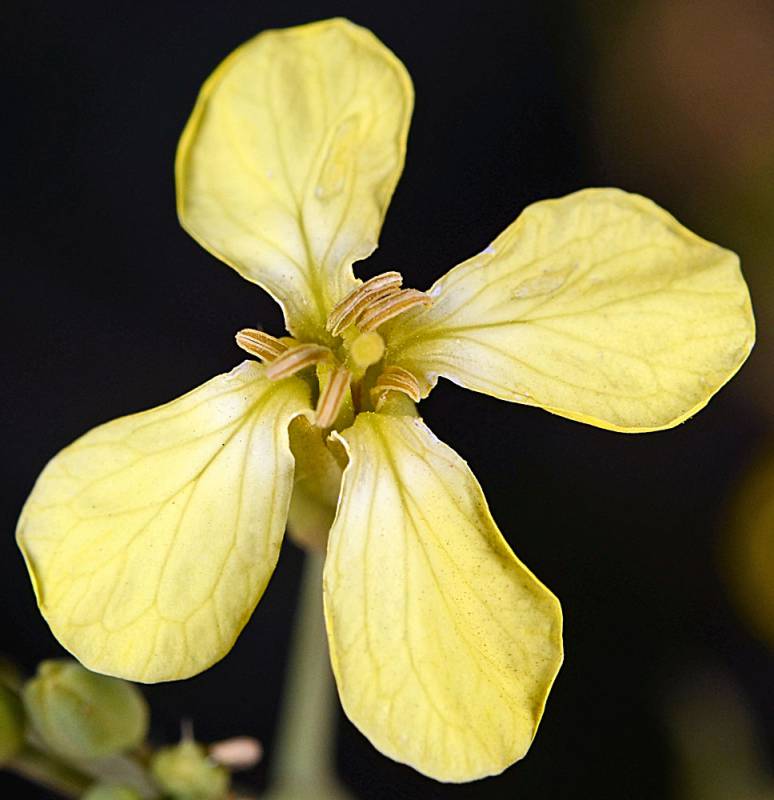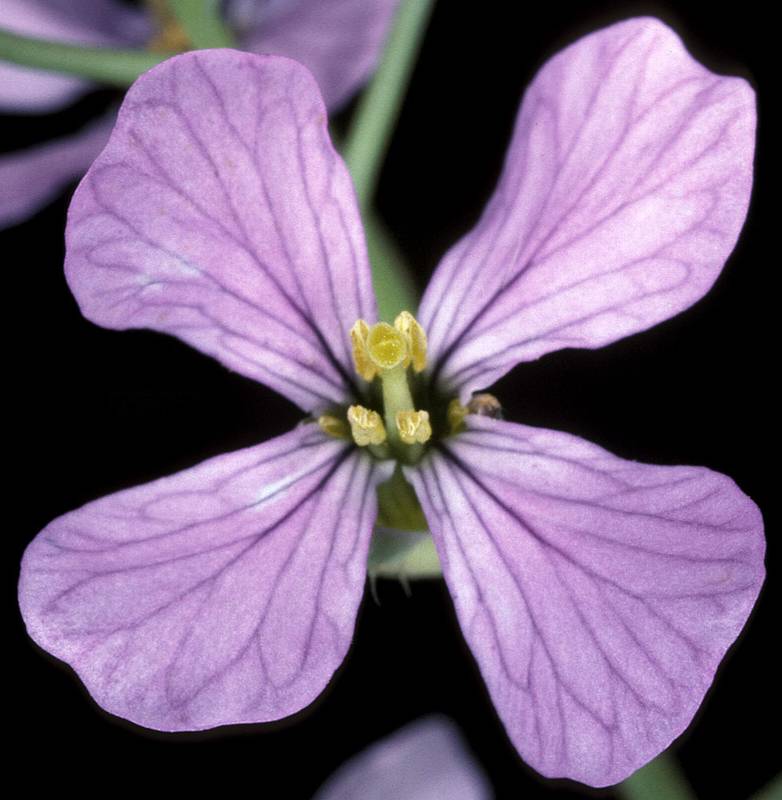Raphanus raphanistrum
Raphanus sativus
jointed charlock, wild radish
garden radish
Basal leaves lyrate-pinnatifid, 6-20 cm. long;
cauline leaves alternate, several, reduced, all petiolate.
Inflorescence of large, often compound, bractless racemes; pedicles ascending, 1-2.5 cm. long;
sepals 4, the outer pair saccate at the base;
petals 4, usually yellow, often purple tinged or veined, clawed, obovate, 15-20 mm. long;
stamens 6.
Siliques terete, 4.5-6 cm. long and 3-6 mm. broad, 2-segmented, the lower segment short, not seed-bearing, the upper segment 1-celled, constricted between the seeds, tapering to a beak-like tip 1-2 cm. long.
Raphanus raphanistrum
Raphanus sativus
Occurring in scattered locations chiefly west of the Cascades crest in Washington; Alaska to California, east to the Atlantic Coast.
Occurring chiefly west of the Cascades crest in Washington; Alaska to California, east across North America to the Atlantic Coast.
- Local floras:
BC,
CA,
OR,
WA
- Local Web sites:
CalFlora,
CalPhotos,
Flora NW,
PNW Herbaria
WildflowerSearch
iNaturalist (observations)
USDA Plants Database
- LBJ Wildflower Center
- SEINet
- Plants of the World Online
- Encyclopedia of Life
- Wikipedia
- Google Image Search
- Local floras:
BC,
CA,
OR,
WA
- Local Web sites:
CalFlora,
CalPhotos,
Flora NW,
PNW Herbaria,
Turner Photog.
WildflowerSearch
iNaturalist (observations)
USDA Plants Database
- LBJ Wildflower Center
- SEINet
- Plants of the World Online
- Encyclopedia of Life
- Wikipedia
- Google Image Search



